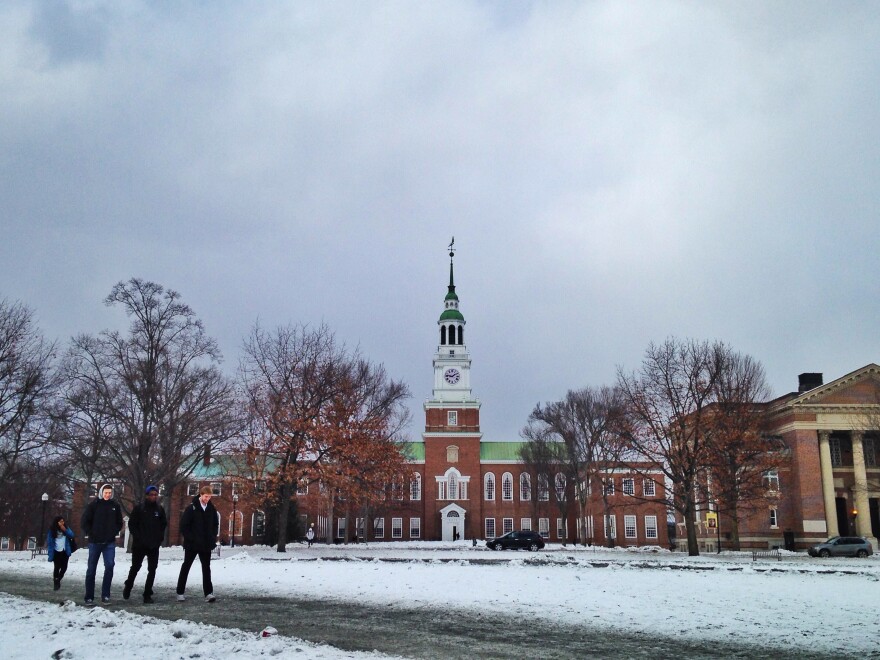Dartmouth College has uncovered the skeletal remains of at least 15 Native American individuals in its academic collections, and is pledging to identify and repatriate the cultural items to tribal and Native Hawaiian nations.
In a statement posted on the school’s website Tuesday, Dartmouth blamed errors in its internal record keeping, and said some of the remains were used in anthropology classrooms as recently as last fall.
In the statement, Dartmouth President Philip Hanlon apologized for the discovery, and outlined a series of steps to ensure all Native American cultural items would be identified and, where possible, returned to ancestral links.
“This is an extremely painful discovery, especially for Native American and Indigenous students and alumni, and for the faculty and staff who believed in good faith that they were not teaching with ancestral remains in their classrooms and labs,” Hanlon wrote on the school’s website.
The Native American Graves Protection and Repatriation Act, or NAGPRA, passed by Congress in 1990, requires institutions receiving federal funds to catalog and potentially repatriate any Native American cultural items.
Dartmouth completed an initial inventory in 1995 and returned some identified cultural items. The school said it has housed an array of anthropological items collected over the past 200 years, some of which were donated by alumni following international travel and were poorly cataloged.
In 2018, Jami Powell, the Hood Museum’s curator of Indigenous art, requested the college perform a fresh inventory of its collection, noting that some inventories at other cultural institutions following the passage of NAGPRA were rushed. But the museum’s renovation, followed by the Covid-19 pandemic, delayed the re-inventory.
Last November, the college’s Anthropology Department shared a spreadsheet it compiled of artifacts in its possession, which were then matched with a separate catalog held by the museum on campus.
The school now believes it has identified the skeletal remains of 15 Native American individuals, and approximately 100 bones that are “potentially problematic, based on appearance.”
The school is planning a series of listening sessions in the coming days, and is continuing to evaluate how it can compile an “ethically sourced collection” of items for the future study of bones and skeletal systems.
The identified remains have been moved off campus to a secure location, with researchers now working “to rearticulate skeletons that had been separated or damaged,” according to the school.
“They are also working to determine the cultural affiliation and other identifying factors, including the age and sex, of individual remains where possible,” the school wrote on its website.
Once that review is complete, the school said it will work to repatriate the cultural remains, and begin “restorative work it can do for Indian Country.”
“Dartmouth is dedicated to righting these heartbreaking wrongs,” said Hanlon.





